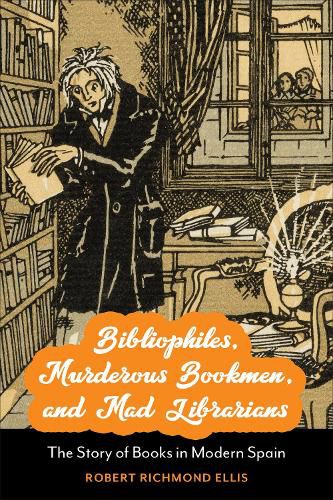Readings Newsletter
Become a Readings Member to make your shopping experience even easier.
Sign in or sign up for free!
You’re not far away from qualifying for FREE standard shipping within Australia
You’ve qualified for FREE standard shipping within Australia
The cart is loading…






The word bibliophilia indicates a love of books, both as texts to be read and objects to be cherished for their physical qualities. Throughout the history of Iberian print culture, bibliophiles have attempted to explain the psychological experiences of reading and collecting books, as well as the social and economic conditions of book production.
Bibliophiles, Murderous Bookmen, and Mad Librarians analyses Spanish bibliophiles who catalogue, organize, and archive books, as well as the publishers, artists, and writers who create them. Robert Richmond Ellis examines how books are represented in modern Spanish writing and how Spanish bibliophiles reflect on the role of books in their lives and in the histories and cultures of modern Spain. Through the combined approaches of literary studies, book history, and the book arts, Ellis argues that two strains of Spanish bibliophilia coalesce in the modern period: one that envisions books as a means of achieving personal fulfilment, and another that engages with politics and uses books to affirm linguistic, cultural, and regional and national identities.
$9.00 standard shipping within Australia
FREE standard shipping within Australia for orders over $100.00
Express & International shipping calculated at checkout
The word bibliophilia indicates a love of books, both as texts to be read and objects to be cherished for their physical qualities. Throughout the history of Iberian print culture, bibliophiles have attempted to explain the psychological experiences of reading and collecting books, as well as the social and economic conditions of book production.
Bibliophiles, Murderous Bookmen, and Mad Librarians analyses Spanish bibliophiles who catalogue, organize, and archive books, as well as the publishers, artists, and writers who create them. Robert Richmond Ellis examines how books are represented in modern Spanish writing and how Spanish bibliophiles reflect on the role of books in their lives and in the histories and cultures of modern Spain. Through the combined approaches of literary studies, book history, and the book arts, Ellis argues that two strains of Spanish bibliophilia coalesce in the modern period: one that envisions books as a means of achieving personal fulfilment, and another that engages with politics and uses books to affirm linguistic, cultural, and regional and national identities.